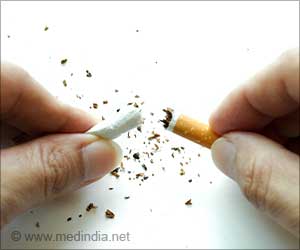Medication is slowly gaining acceptance in mainstream addiction therapy in US.
Medication is slowly gaining acceptance in mainstream addiction therapy in US.
Two recent studies have proving the efficacy of Naltrexone and topiramate in treating alcoholism have come as a boost to the trend.A study led by Dr. Bankole Johnson of the University of Virginia found that topiramate (Topamax) -- already used to treat epilepsy and migraines -- reduced the number of days on which alcoholics drank heavily, by 25 percent more than among alcoholics who got just therapy.
A federally funded study known as COMBINE compared cognitive-behavioral therapy alone with therapy along with naltrexone. Patients receiving both were more likely to stay abstinent and drank less if they did relapse.
Johnson is a paid consultant to the company that makes Topamax, but his study appeared in the Journal of the American Medical Association and he says other medications can also work well. "I think everybody who's an alcoholic should be given medication if they're willing to take it," he says. "It's been shown over and over with research studies that effects of medicine are over and above that of therapy. And if you're not getting the medicine, it's a bit like having one hand tied behind your back."
Naltrexone and topiramate have slightly different mechanisms, but both seem to block the release of brain chemicals that are linked to pleasure and excitement.
Neither is addictive nor do they carry any side effect. They could also work better in certain subgroups -- topiramate for repeat relapsers, and naltrexone in people with a strong family history of alcoholism.
Advertisement
Then he signed up for the COMBINE study. This time, he stayed sober, even after his doctor took him off naltrexone. That was more than eight years ago.
Advertisement
Dr. Kevin Clark, medical director at Hazelden in Minneapolis, Minnesota says the traditional model -- based on intensive therapy and the 12 steps popularized by Alcoholics Anonymous -- is still best. "It is a disease of the brain, but it's a multifaceted disease. It has a spiritual component, a behavioral component to it," says Clark. "Our experience tells us that having the network of support and recovery is what really makes the difference."
John Schwarzlose, executive director of the Betty Ford Center, echoes that but takes a more stringent approach. No patients at Betty Ford receive anti-addiction drugs as part of treatment, although a handful of long-time addicts may be referred to a prescribing physician once their stay is over.
He argues that Willenbring and Johnson are using the wrong measure of success. He says abstinence is the only true measuring stick -- that an alcoholic who is drinking less is just at a way station on the road to relapse. "Naltrexone has reduced drinking, but once you're addicted, there is no such thing as 'OK' drinking. This is one of those cases where there's a real schism between the research and actual practice."
This attitude frustrates Willenbring, who estimates that in the United States only one addict in 10 has even heard about medication options. "In most cases, the treatment is entirely nonmedical. Most people are not even told about the medications that are available for treating alcohol dependence, and I think that's a crime."
Still some are inclined to listen. Like Percy Menzies, a pharmacist and former sales representative for DuPont, which developed naltrexone. His St. Louis, Missouri-based Recovery Centers for America treats patients in an on-site hospital, then refers them to outside physicians for follow-up treatment. Along with therapy, virtually every patient is given Vivitrol, a long-lasting form of naltrexone that's given monthly by injection.
Source-Medindia
GPL/L












